Today we packed up and moved closer to the Lake Manyara region of Tanzania where we visited the village of Mto Wa Mbu – which translated literally means river of mosquitos – much to Dave’s horror. Fortunately, the mosquitos were largely under control in the little town.
We met our guide, who showed us around the town. First up was the rice fields. Here they have such an abundance of water from the mountains that even at the very end of the dry season, they have enough water to grow lots of rice.
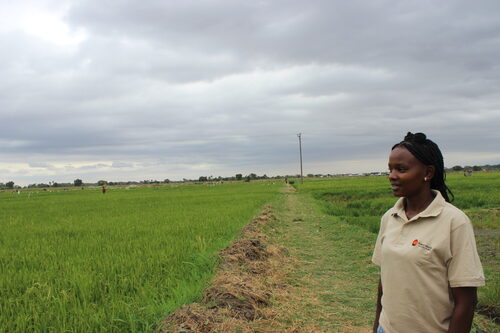
These little huts are where the farmers sleep at night to defend their crop from birds and from other farmers trying to steal their water. Though why they were fighting over water isn’t clear as there appears to be lots.
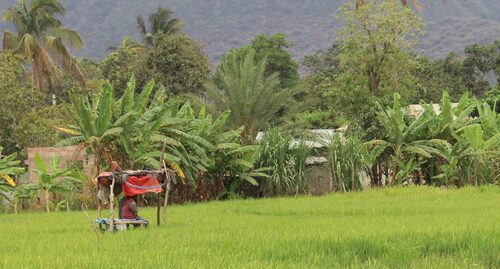
Along the way we were mobbed by school children that just got out of classes. They very much wanted their picture taken. When Melissa showed them their pictures on the camera the crowd grew even larger.
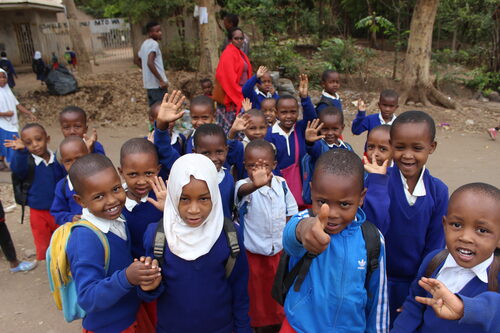
Then we went for a walk down the main road. On the left is national park, and on the right the town with lots of banana plantations. The animals don’t understand the road is the end of their turf. The whole town is locked up tight by about 6pm when the sun goes down as the elephants and other animals migrate across the road to what they see as their feeding ground.
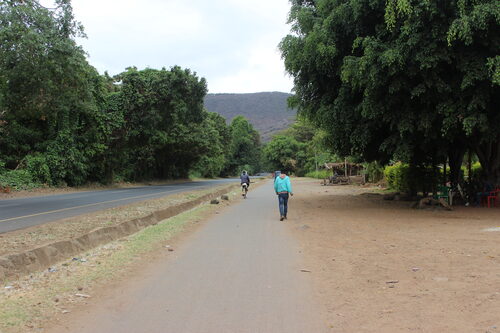
This banana plantation has chosen to plant spinach crops as a second crop below the banana trees. This is highly controversial as many believe the spinach attracts the elephants as they love eating the tasty greens. When the elephants come through here they destroy the banana trees by just trampling them. Banana plants take about a year to mature – so when a crop is destroyed the economic impact on the farmers is huge.
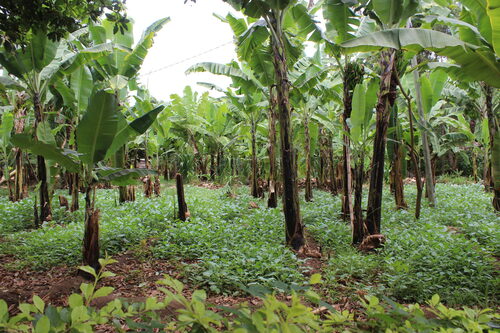
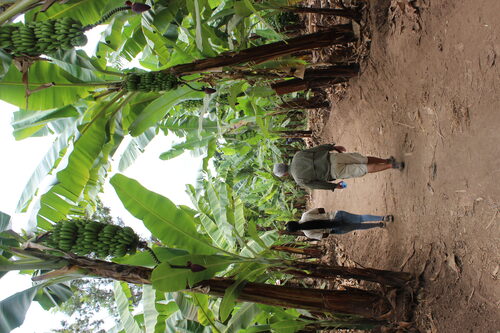
This is the house owned by the farm owner.
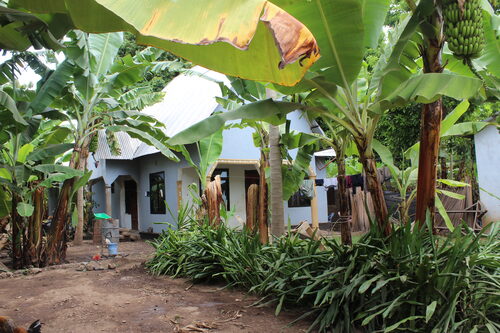
This is where his workers live. The dude out front didn’t look overly friendly.
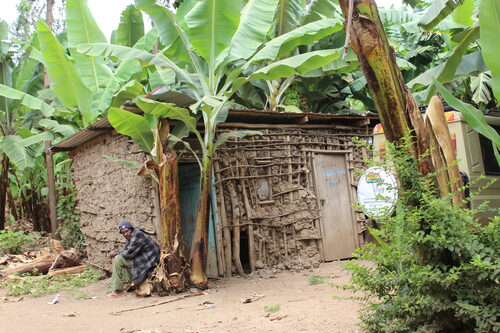
Our guide then shared with us the local banana beer. Its made by grinding up bananas and letting them ferment for a couple of weeks. Then millet which is sprouted, dried, and then ground is mixed in. Looked an awful fright of a drink but tasted pretty good. You would pass one large glass around between all the people. First you blow on it to blow the millet foam away then drink. All gatherings here require banana beer. Each local tribe has its own recipe. and often tribes don't like each other's beer. Beer is absolutely required in large quantities to be brought by a prospective husband when trying to buy a wife from a family.
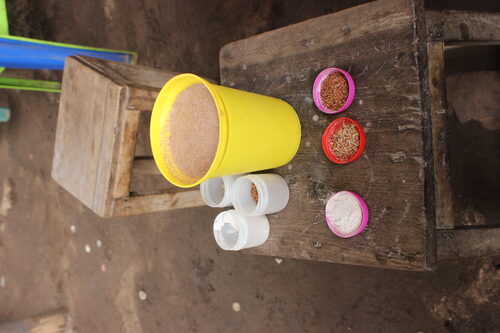
Here is where they make the beer.
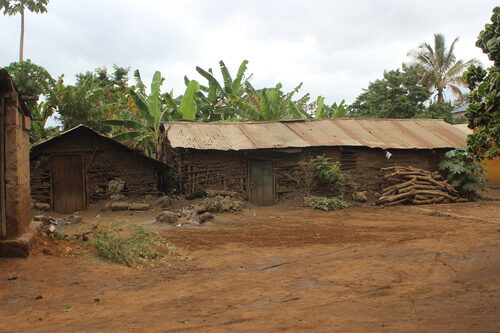
We also visited some artisans. The first is a local artist that paints the usual paintings for tourists. He also has a painting school for the local children as they don’t teach art in school here. Melissa thought to buy one of the colorful paintings of the Massai but she couldn’t shake the notion that every time she looked at it she would just be sad thinking about what the Massai do to girls.
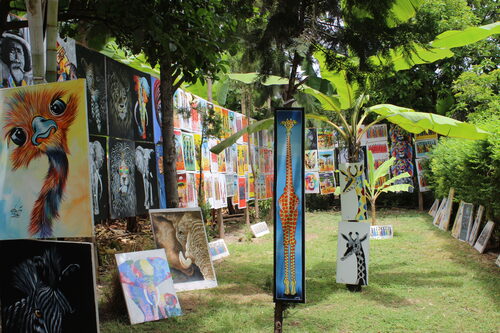
Then we visited a carving shop.
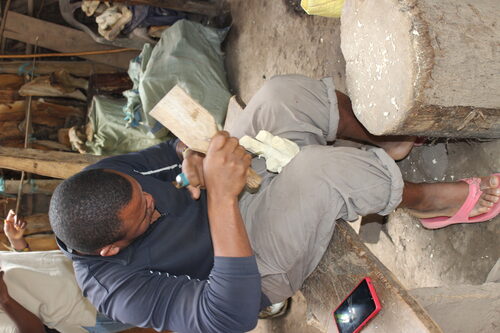
Here we bought some small soapstone figurines of a hippo, elephant, rhino, and giraffe in hopes that we could use them to play Mexican train back home. They wanted $40 USD for them. An absurdly high price. They were probably worth $10. Dave refused to pay more than $20.
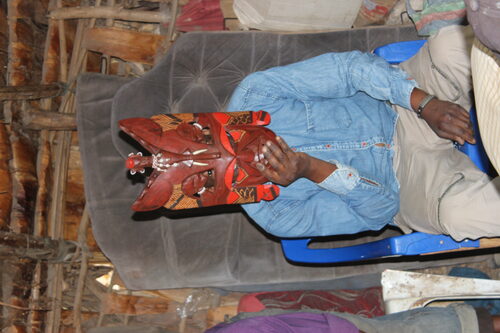
On our way back down the road, this group of ladies started chattering as we went by. Our guide translated that they had said that Melissa was beautiful. The implication being “beautiful for a white woman”. They went onto explain that they didn’t see very many curvaceous white women and thought Melissa had a great figure. A bit of a laugh for us as “fat” isn’t exactly considered beautiful in the US. We explained as much through the translator, and it just made them all laugh harder. Stupid Americans.
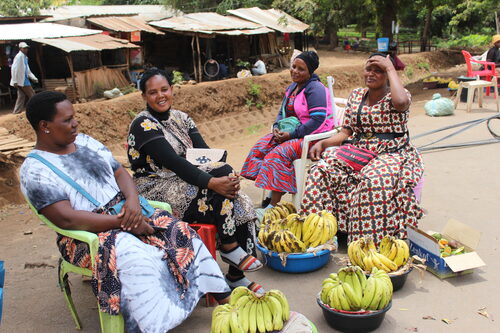
We went onto the local market where there was an abundance of fresh veggies.
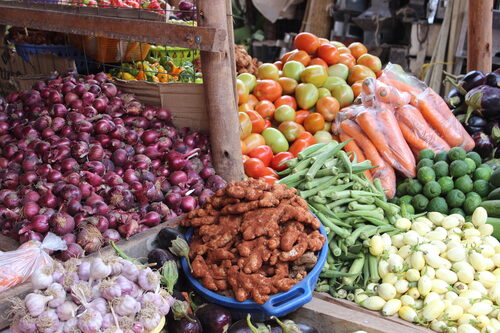
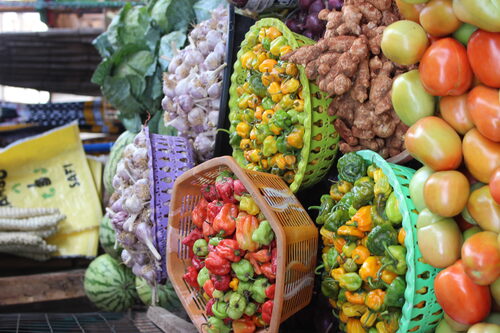
We later got the chance to taste the red bananas which are very sweet and yummy.
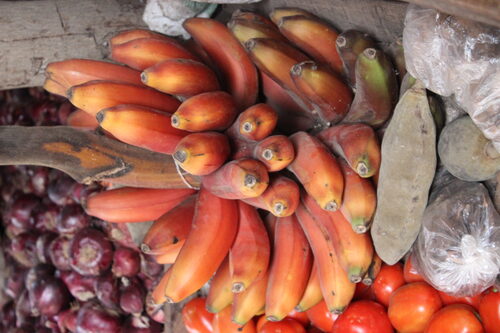
They also sell dried sardines and shrimp. The leftovers and small stuff gets sold as chicken feed.
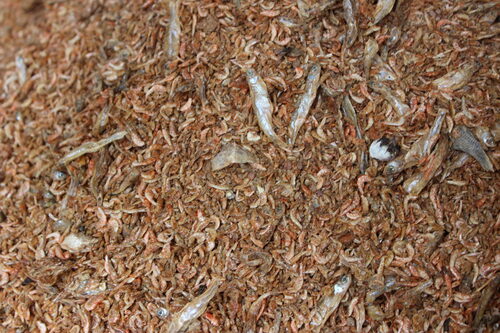
Our guide gave us a lesson in banana growing and sales. The banana farmers bring their crops to a central location – usually via motorcycle. There the bananas are loaded into large bags and placed on a truck. A woman is always in charge of this activity. She gives the farmers the going price, minus the taxes due the government. The truck is then driven into the cities and re-sold.
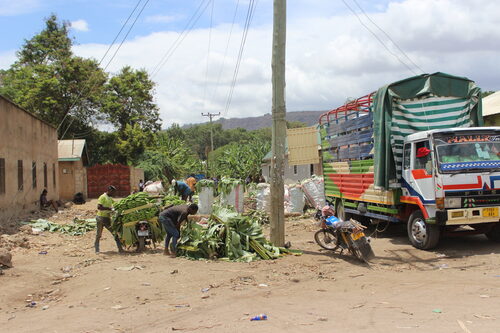
For lunch we went with the local guide, her boss, and our guide to a local place where “mama” was cooking a home made meal. The food was pretty tasty. Though the beef was so hard and stringy that it was near to inedible by our standards.
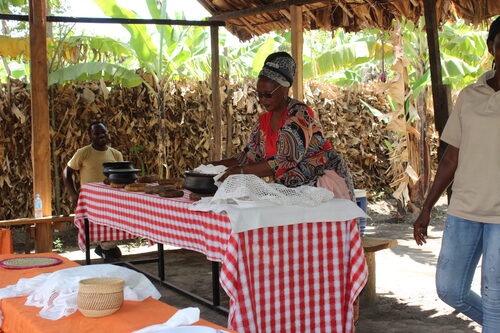
Over lunch we chatted with everyone about how they themselves and Tanzania fared during COVID when there was no tourism. The answer was basically, “not well”. All three of them had to revert (along with everyone else) to agriculture based life. They grew their own food for their families because there was no money. What few people were able to get state sponsored social security assistance often blew the money on alcohol and then committed suicide. Shabani talked about the one thing he spent his savings on – keeping his children in private school where they were taught in English. Many people could no longer afford a private education which meant moving to the government run schools taught in Swahili. A challenge for children who often knew things like the names of locations only in English. But for Shabani nothing was more important than his children’s education. He grew his own potatoes in his back yard before he would sacrifice his kids education.
The area immediately around Lake Manyara is rich farm land with plenty of access to water. Most of what they grow is corn and onion. Much of which is sent to Kenya. Tanzania is East Africa’s bread basket. They export tons of food. If the border with Kenya were to close, Kenya would begin to stave within a couple of weeks.
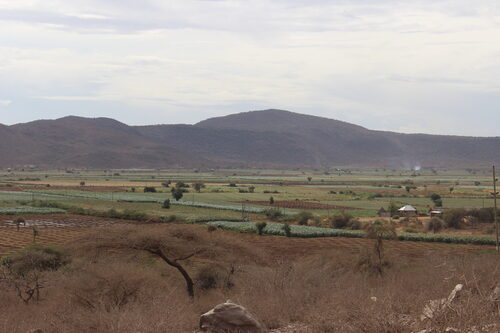
We landed for the night at Kisima Ngeda Camp right on the lake. Best food outside Arusha. It was beef for dinner that was nice and tender. A great change from some of the meals we have had thus far.